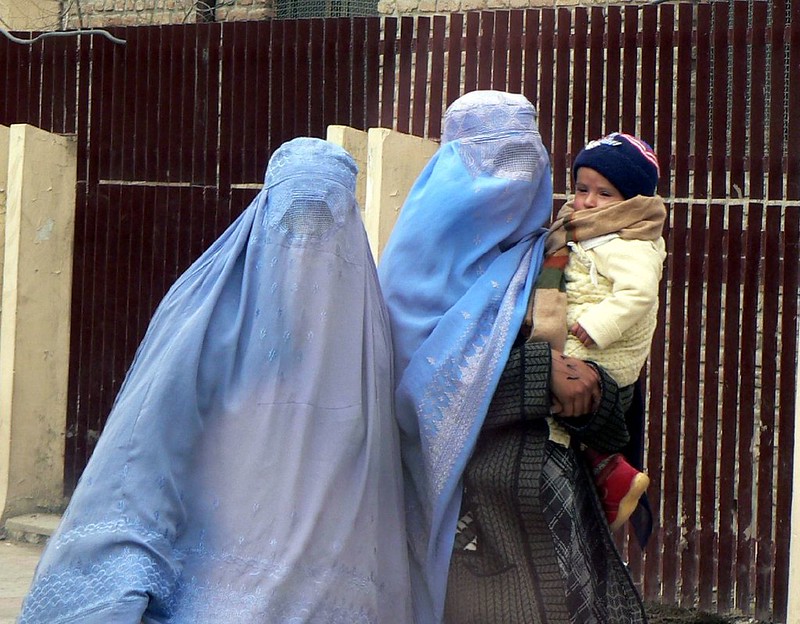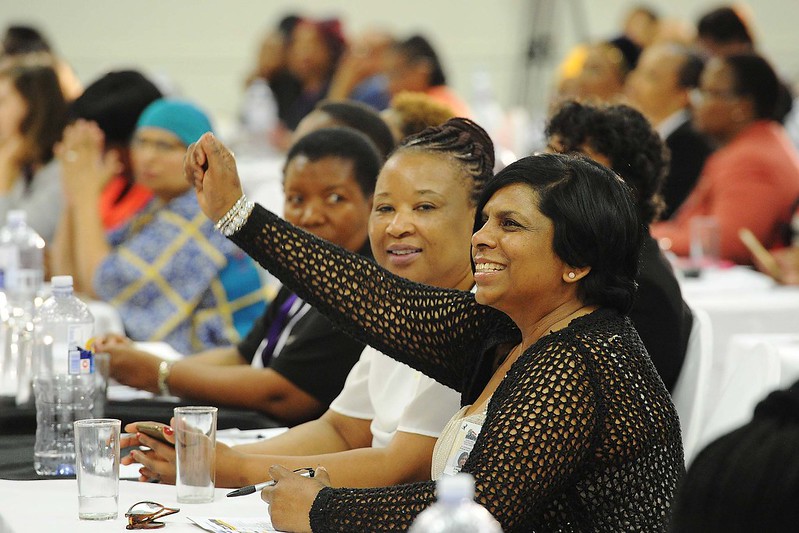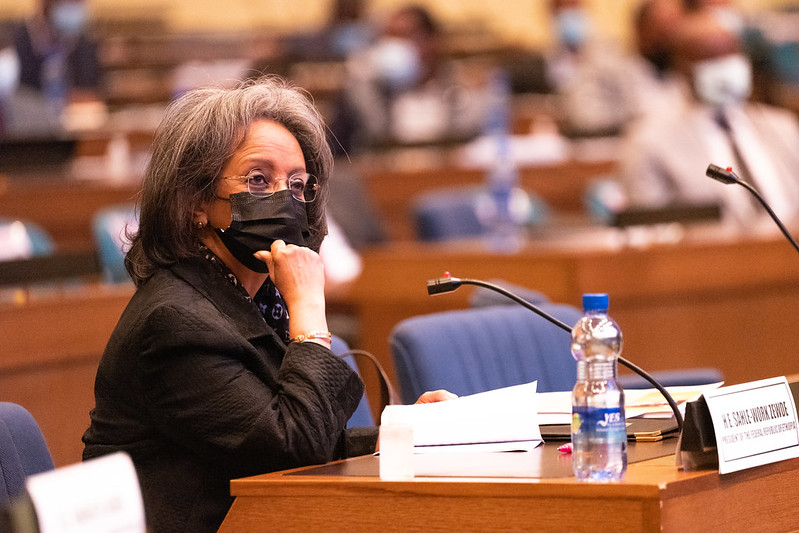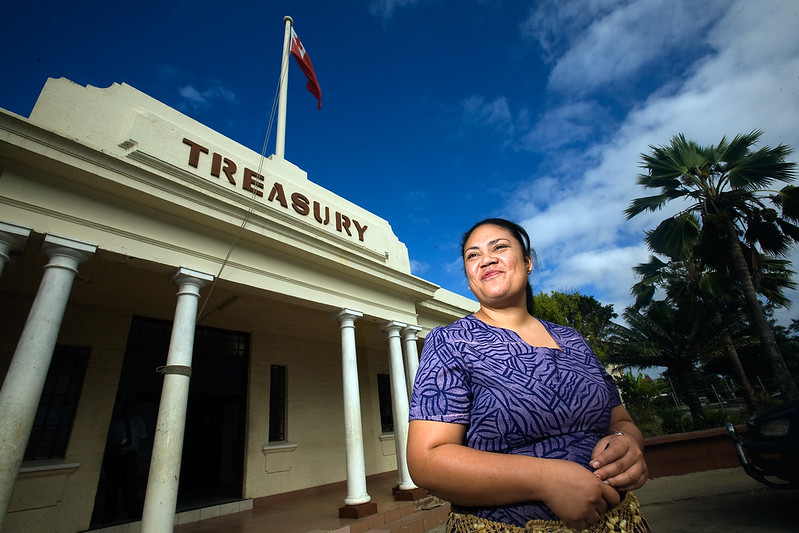 The Taliban, an Islamic fundamentalist group, returned to power in 2021 after a 20-year insurgency. Following its ousting by a United States (U.S.)-led invasion in 2001, the group regrouped across the border in Pakistan. Within a decade they began reclaiming territory in Afghanistan. Since its return to power, the Taliban has severely threatened Afghan civil rights and liberties. The group has revived practices similar to its oppressive rule in the late 1990s. The United Nations (U.N.) mission in Afghanistan has reported numerous human rights violations. Journalists face intimidation, press freedoms have been sharply curtailed and several news organizations, including The Daily Afghanistan, have shut down. Additionally, the Taliban has reinstated the Ministry for the Promotion of Virtue and Prevention of Vice, known for enforcing bans on activities deemed un-Islamic during its previous rule.
The Taliban, an Islamic fundamentalist group, returned to power in 2021 after a 20-year insurgency. Following its ousting by a United States (U.S.)-led invasion in 2001, the group regrouped across the border in Pakistan. Within a decade they began reclaiming territory in Afghanistan. Since its return to power, the Taliban has severely threatened Afghan civil rights and liberties. The group has revived practices similar to its oppressive rule in the late 1990s. The United Nations (U.N.) mission in Afghanistan has reported numerous human rights violations. Journalists face intimidation, press freedoms have been sharply curtailed and several news organizations, including The Daily Afghanistan, have shut down. Additionally, the Taliban has reinstated the Ministry for the Promotion of Virtue and Prevention of Vice, known for enforcing bans on activities deemed un-Islamic during its previous rule.
The Current State of Women’s Rights
Women’s rights in the region have been eradicated. According to Amnesty International, Afghanistan ranks last for women’s rights globally, positioned at 177 out of 177 countries on the Women’s Peace and Security Index for 2023/2024. It is the only country that restricts girls’ access to education beyond the sixth grade and prohibits women from working for nongovernmental organizations.
The Ministry for the Promotion of Virtue and Prevention of Vice has expanded its authority to control personal behavior and enforce punishments rigorously. This expansion is based on a 114-page document with 35 articles dictating nearly every aspect of life in Afghanistan. “We assure you that this Islamic law will greatly aid in promoting virtue and eliminating vice,” said ministry spokesman Maulvi Abdul Ghafar Farooq. The ministry’s enforcers have the authority to detain and fine law violators.
Article 13, focused on avoiding temptation, mandates that women must conceal their figures, cover their faces and refrain from making eye contact with men who are not family members. Article 15 prohibits women from traveling without a male guardian or interacting with unrelated men. Acting Minister Mohammad Khalid Hanafi emphasized that there would be “no compromise in the enforcement of Islamic laws.”
Fragility and Rule of Law in Afghanistan
The collapse of the previous government has led to a significant breakdown in legal protections for women:
- Replacement of Existing Laws. The Taliban has replaced the existing legal framework with its strict interpretation of Sharia law, abolishing many rights and protections that women previously enjoyed under the Afghan constitution and civil code.
- Arbitrary Implementation. The new legal system often applies rules arbitrarily, lacking consistent application and due process. This unpredictability further undermines the rule of law and leaves women vulnerable to rights violations.
- Limited Access to Justice. Under the new regime, women face severe limitations. Many formal legal institutions have ceased to function or now exclude women entirely. This effectively denies them any recourse to legal protection or dispute resolution.
International Responses
The U.N. has been at the forefront of condemning the Taliban’s actions and advocating for women’s rights in Afghanistan:
- The U.N. Security Council Resolution 2681 (2023) called for the immediate removal of all restrictions violating the rights of Afghan women and girls.
- The U.N. Secretary-General António Guterres has characterized the situation in Afghanistan as “gender apartheid.” The U.N. Special Rapporteur on Afghanistan, Richard Bennett, has called on the Taliban to release women human rights defenders and respect all human rights of women and girls.
- Many countries have used diplomatic channels to express their concerns. The United Kindom (U.K.) The ambassador to the U.N. denounced the Taliban’s actions as “medieval misogyny above humanitarian need.” Multiple U.N. member states, including Albania, Ecuador, Malta and Spain, have characterized the situation as gender apartheid in U.N. Security Council sessions.
Legal and Policy Initiatives
Several legal and policy initiatives are being pursued to address the fragility of the rule of law in Afghanistan.
- Codifying Gender Apartheid: Efforts are underway to codify gender apartheid as a crime against humanity, potentially involving the International Criminal Court (ICC) in addressing systematic discrimination against women in Afghanistan. U.N. experts have called for investigations into the Taliban, holding them accountable for human rights violations based on gender, which amount to gender persecution.
- Targeted Sanctions: Some nations are exploring the implementation of targeted sanctions against specific Taliban leaders responsible for rights violations. This approach aims to increase pressure on decision-makers within the Taliban regime.
- Humanitarian Aid Principles: Calls are intensifying for principled engagement in humanitarian aid. Furthermore, demands are being made for the Taliban to immediately lift the ban on Afghan women working for the U.N. and NGOs. There is also a push for supporting the full and safe participation of women in humanitarian decision-making and delivery, alongside increased support for humanitarian organizations, particularly those led by Afghan women.
- Accountability Mechanisms: There are growing calls for accountability, a key feature in truly upholding the rule of law. Advocates demand that perpetrators of international human rights and humanitarian law violations face accountability. They emphasize the need to address gender persecution and other abuses targeting diverse women and girls.
Looking Ahead
The fragility of the rule of law in Afghanistan underscores the challenges of maintaining legal protections in unstable political environments. This situation highlights the need for robust international mechanisms to safeguard human rights and uphold the rule of law in fragile states.
– Hannah Ravariere-Moakes
Hannah is based in London, UK and focuses on Politics for The Borgen Project.
Photo: Flickr



 According
According  Sierra Leone, located along the West African Atlantic coast, boasts fertile landscapes that support prosperous agricultural systems. Despite this, the nation has grappled with severe women’s rights issues. A significant change occurred in January 2023 when President Julius Maada Bio enacted the Gender Equality and Women’s Empowerment Act (GEWE). This law marks a transformative moment for women in the country, heralding a new era of enhanced equality and rights.
Sierra Leone, located along the West African Atlantic coast, boasts fertile landscapes that support prosperous agricultural systems. Despite this, the nation has grappled with severe women’s rights issues. A significant change occurred in January 2023 when President Julius Maada Bio enacted the Gender Equality and Women’s Empowerment Act (GEWE). This law marks a transformative moment for women in the country, heralding a new era of enhanced equality and rights.
 Peru struggles with high national poverty rates and an economy that
Peru struggles with high national poverty rates and an economy that  Gender significantly influences poverty in Gaza, with data indicating that female-headed households in Palestine are
Gender significantly influences poverty in Gaza, with data indicating that female-headed households in Palestine are 
